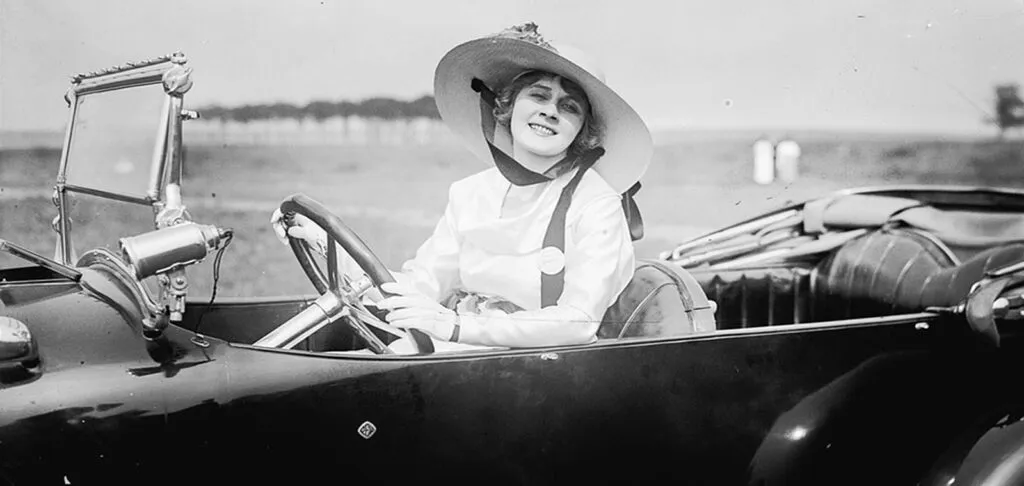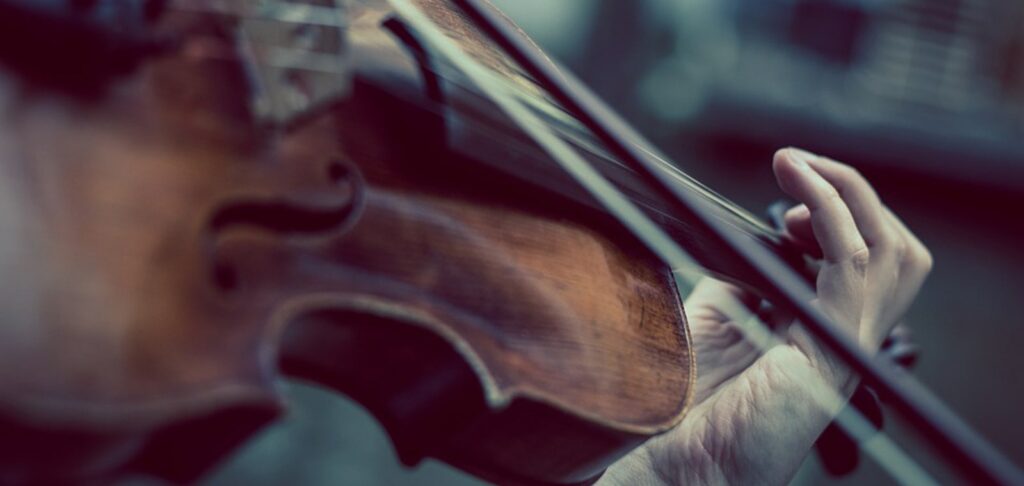
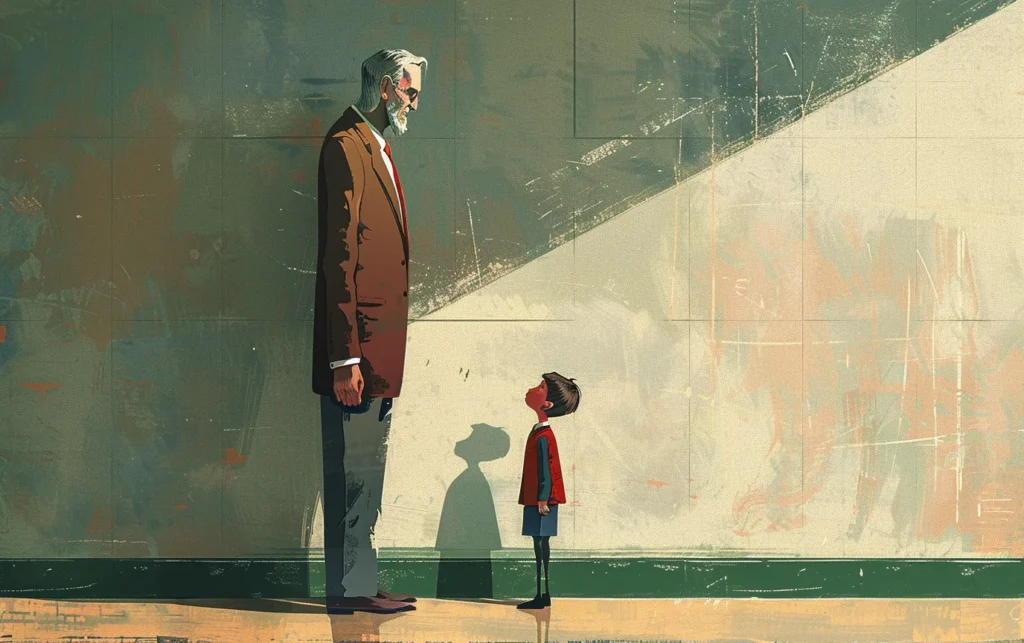
Социальный статус, определяемый такими факторами, как должность, уровень дохода и ученая степень, оказывает глубокое влияние на уважение и восприятие человека в обществе.
Многочисленные исследования продемонстрировали поразительное влияние статуса на то, как люди воспринимают других и как к ним относятся.
Эксперимент «Профессор против аспиранта
Одним из убедительных примеров этого феномена является эксперимент, в котором психологи провели человека по студенческим аудиториям, представляя его то профессором, то аспирантом.
Когда позже их спросили о приблизительном росте мужчины, студенты, встретившие «профессора», переоценили его рост, а те, кто увидел «аспиранта», недооценили его.
Это иллюстрирует сильное влияние воспринимаемого статуса на оценку людьми интеллекта, компетентности и даже физических качеств.
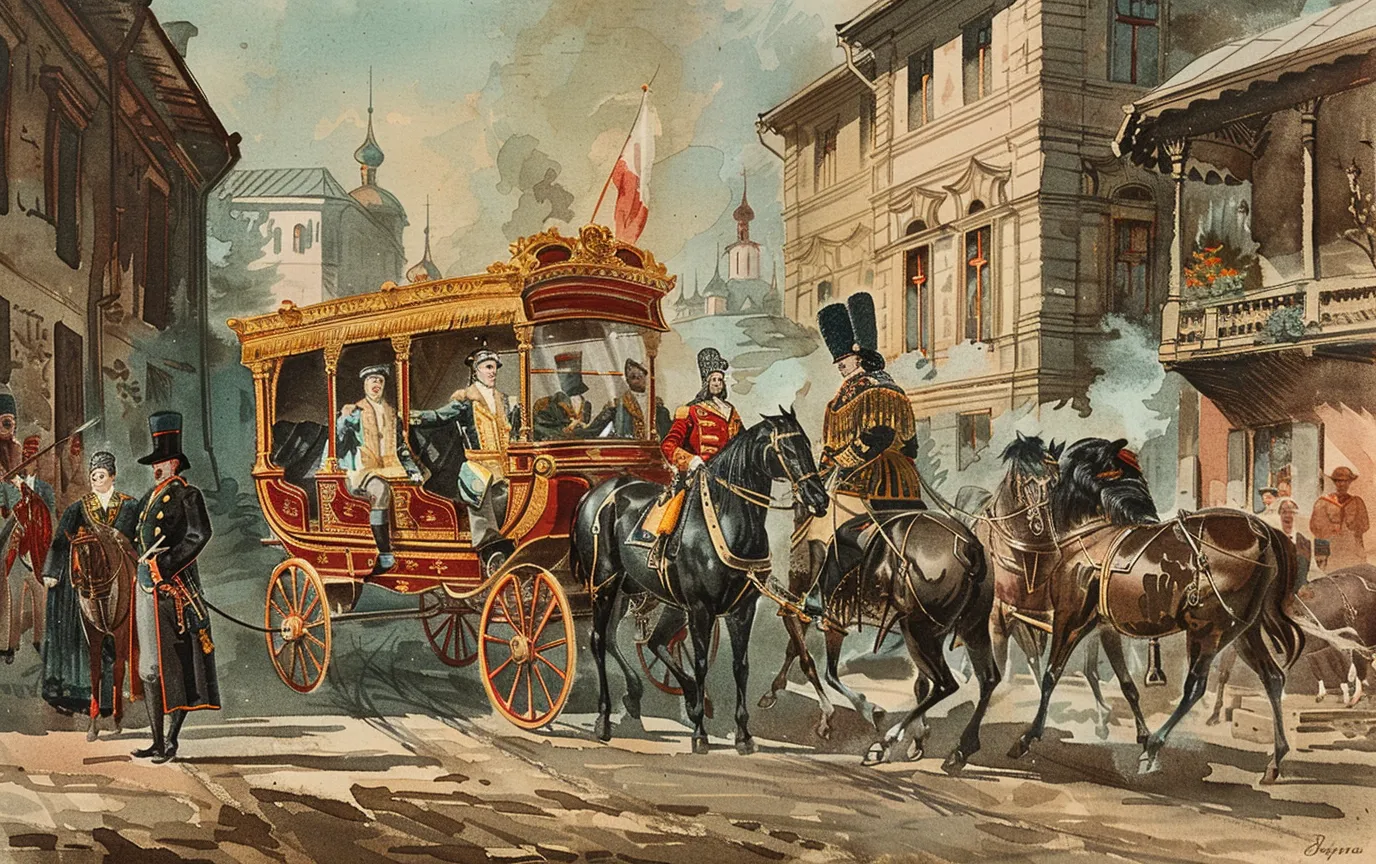
Исторические маркеры социального статуса
На протяжении всей истории человечества различные атрибуты служили четкими индикаторами социального статуса и вызывали соответствующее уважение.
В Российской империи, например, средства передвижения строго регламентировались в зависимости от сословия:
- Именитые граждане (знатные вельможи, известные ученые, высокопоставленные чиновники) должны были ездить в каретах, запряженных четверкой лошадей
- Купцам второй гильдии разрешалось ездить только в каретах с парой лошадей
- Мелкие торговцы, рабочие и другие представители общественности могли запрягать не более одной лошади.
Одежда также определялась социальным рангом: простые люди носили овчинные шубы, мелкие чиновники — шерстяные шинели, а высшие чины щеголяли меховыми шубами.
В зависимости от ранга выбирался и вид меха — от лисьего до тюленьего.
Статусные символы в разных культурах
Подобные статусные ограничения были характерны не только для Российской империи. В Древнем Китае красные одежды разрешалось носить только членам императорской семьи.
Хотя это и было недемократично, такие четкие различия позволяли легко определять соответствующий уровень уважения и почтения к человеку в зависимости от его наряда и аксессуаров.
Исторические примеры манипулирования статусом
На протяжении всей истории были интригующие случаи, когда правители пытались понизить статус иностранных послов с помощью различных средств.
Эти примеры подчеркивают сложную динамику власти в дипломатических отношениях и значение, которое придается статусу и уважению.
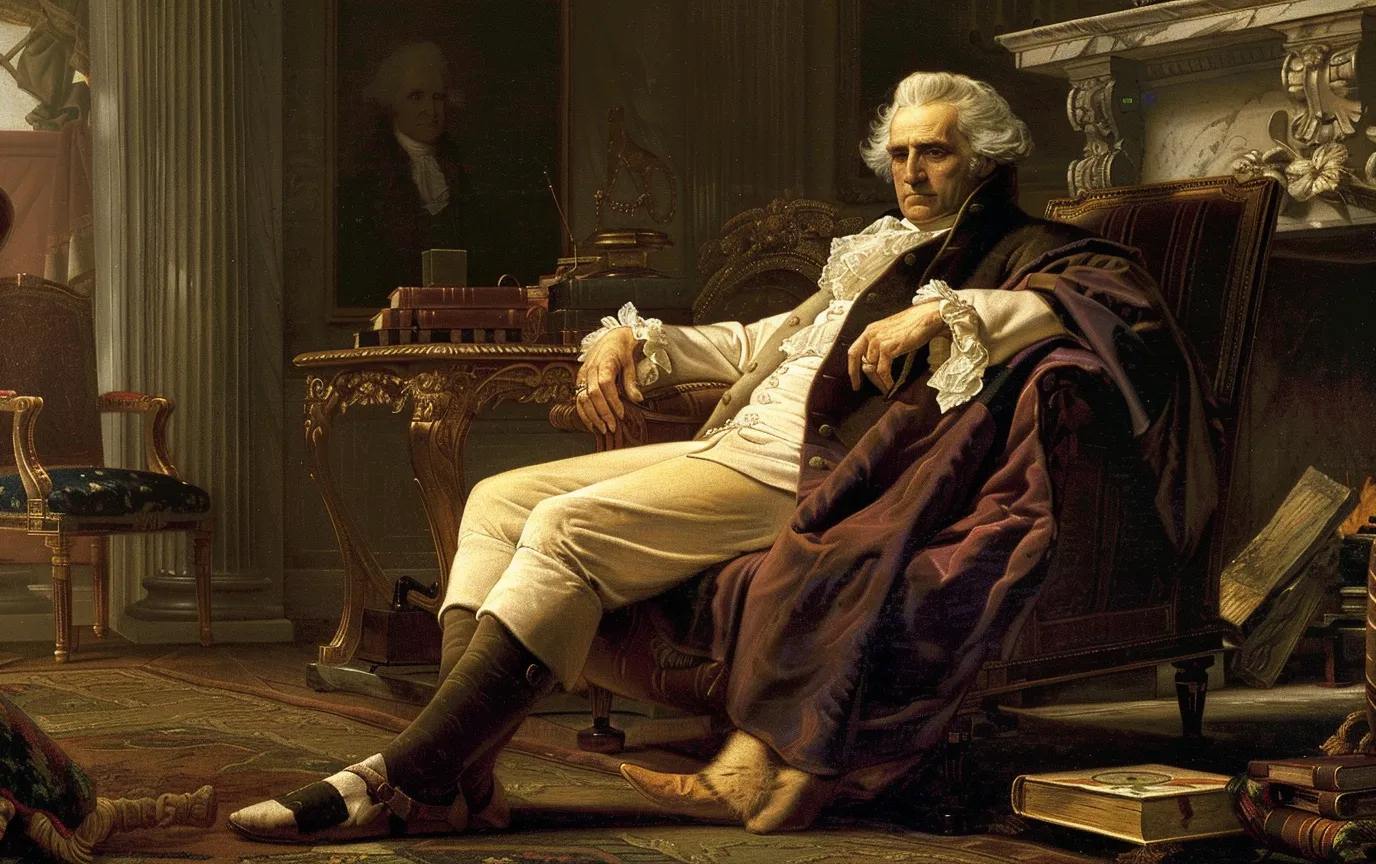
Томас Джефферсон и английский посланник
В 1804 году Томас Джефферсон, президент новых независимых Соединенных Штатов, принял в своем кабинете английского посланника, надев ночные туфли.
Такой нетрадиционный выбор обуви, скорее всего, был намеренной попыткой принизить статус английского представителя.
Показывая себя в непринужденной, неформальной манере, Джефферсон утверждал свой собственный статус лидера суверенной нации и тонко подрывал воспринимаемое превосходство Британской империи.
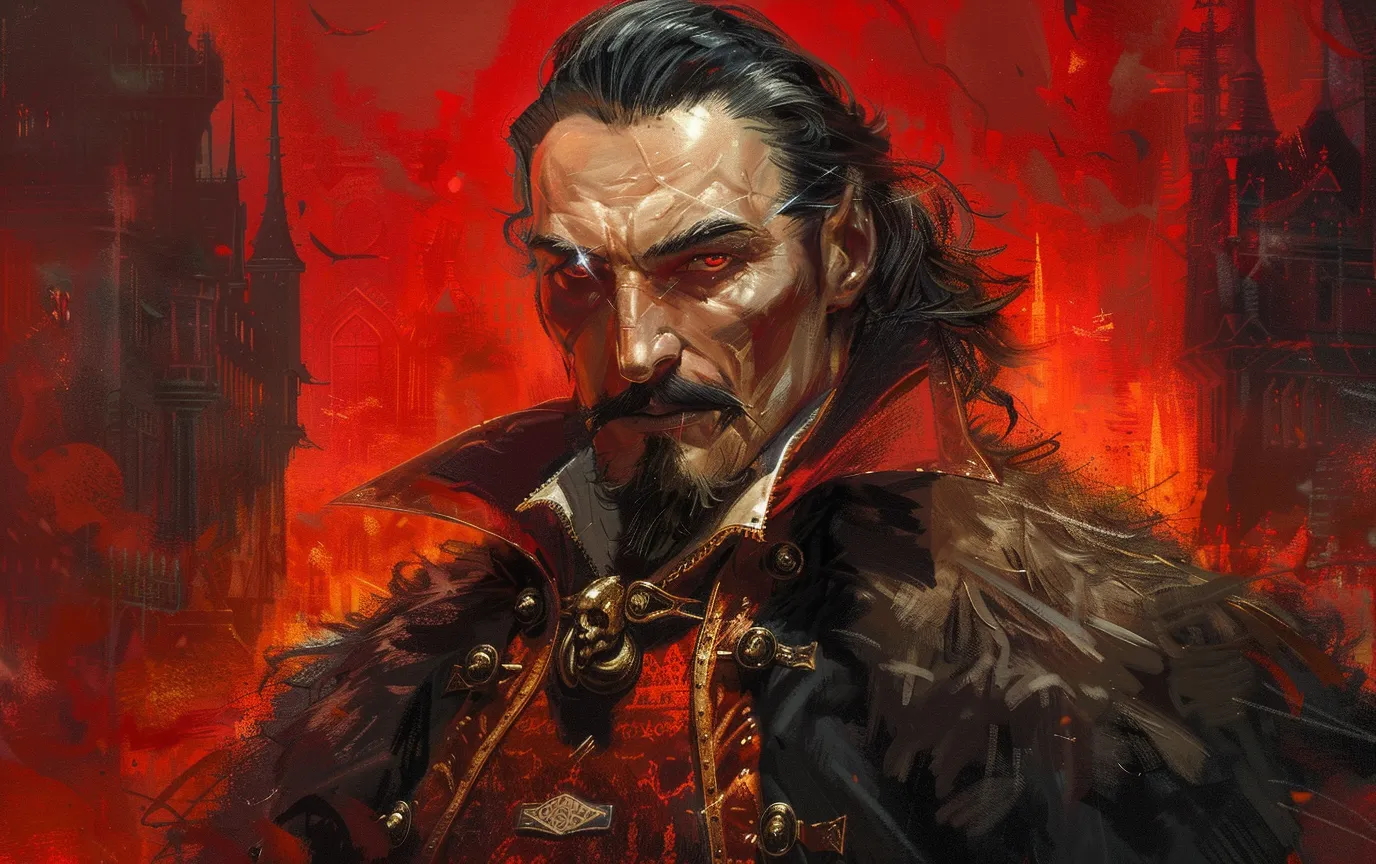
Влад Дракула и турецкие послы
Влад Дракула, румынский князь, использовал более экстремальный подход к соблюдению статусной иерархии.
Он приказал казнить турецких послов, которые отказались снять шляпу в его присутствии.
Этот жестокий поступок стал наглядной демонстрацией абсолютной власти Дракулы и его требования полного почтения к иностранным сановникам.
Заставив послов выбирать между нарушением собственных культурных норм и смертью, Дракула утвердил свое господство и понизил их статус самым жестоким образом.
Эти исторические анекдоты иллюстрируют, на какие меры готовы пойти некоторые правители, чтобы манипулировать статусом и добиваться уважения со стороны других.
Хотя в современных дипломатических отношениях такие крайние меры уже неприемлемы, основополагающие принципы статуса и власти продолжают определять взаимодействие между людьми и государствами.
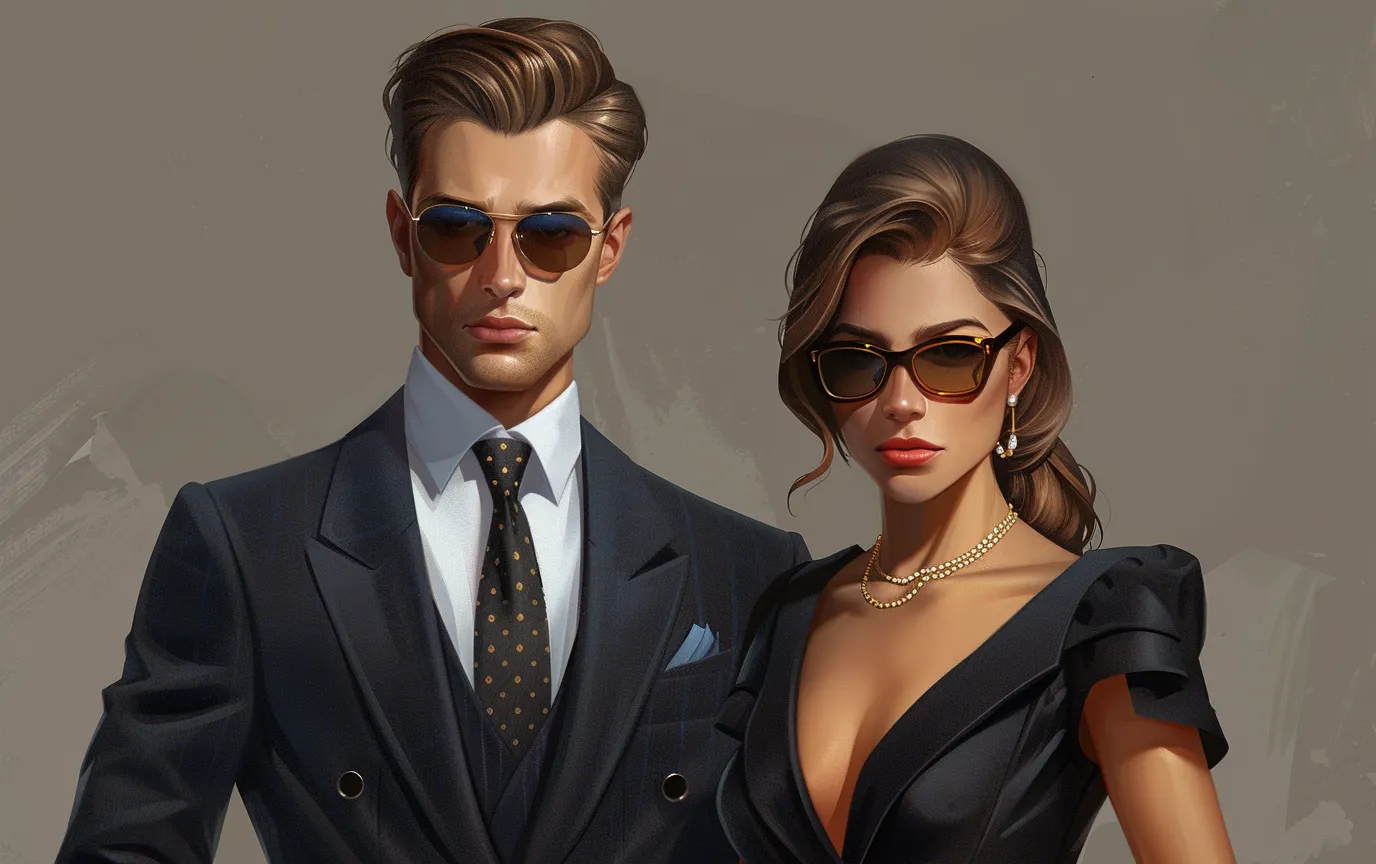
Современные символы статуса и их влияние
В современном обществе символы статуса эволюционировали, но по-прежнему играют важную роль в формировании восприятия и завоевании уважения.
В то время как открытые классовые ограничения на транспорт и одежду в значительной степени ушли в прошлое, тонкие маркеры статуса продолжают влиять на отношение к человеку.
Сила внешнего вида в социальном статусе
Внешний вид по-прежнему является ключевым фактором, определяющим статус и вызывающим уважение. Например, хорошо сшитый деловой костюм часто воспринимается как «более высокий статус», чем повседневная одежда вроде джинсов и свитера.
Минимализм и дорогие украшения производят большее впечатление, чем обилие бижутерии.
Стильная, ухоженная прическа также повышает восприятие статуса и компетентности человека.
Роль общения в завоевании уважения
То, как мы общаемся, играет решающую роль в формировании и поддержании уважения.
Четкая, уверенная и компетентная речь без излишней громкости повышает статус человека.
Стратегическое использование иностранных слов или технических терминов может продемонстрировать компетентность, но важно не переусердствовать и не вызвать отторжения у окружающих.
В конечном счете, цель состоит в том, чтобы найти баланс между демонстрацией знаний и сохранением дружелюбия.
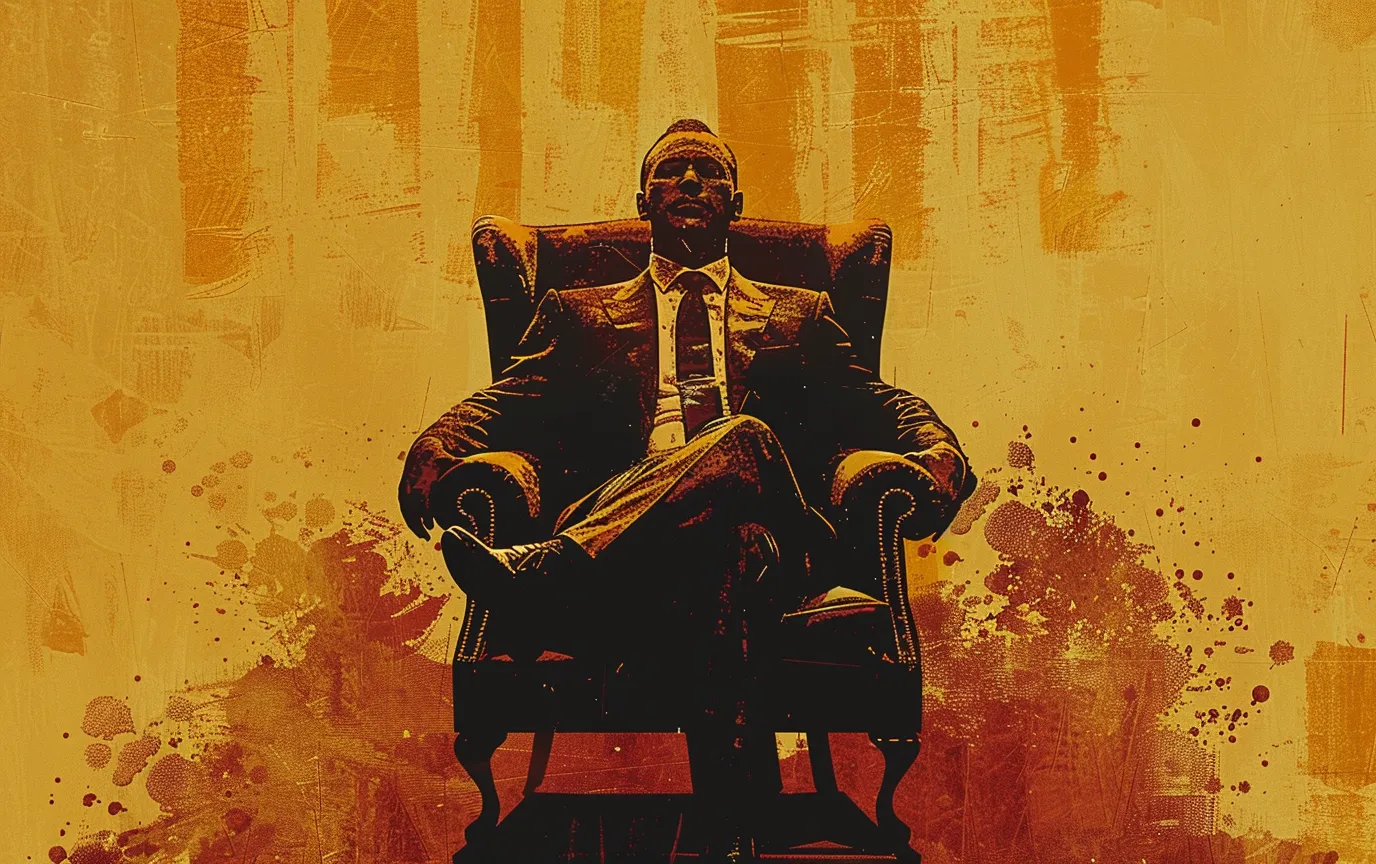
Использование пространства и окружения для влияния на статус
Физическое окружение и то, как мы с ним взаимодействуем, может существенно повлиять на восприятие статуса.
Например, сидение в кресле с подлокотниками, широким сиденьем и высокой спинкой передает авторитет и вызывает уважение. Это напоминает троны, которые использовались монархами на протяжении всей истории человечества.
Вращающийся стул позволяет тонко проявлять эмоции с помощью движений, а не открытой жестикуляции, сохраняя атмосферу таинственности и побуждая окружающих уважать ваше присутствие.
Навигация по статусу в межличностном взаимодействии
Хотя исторические примеры обращения по статусу, такие как действия Павла I и Влада Дракулы, могут показаться экстремальными по современным меркам, основополагающие принципы статуса и уважения по-прежнему влияют на динамику межличностных отношений.
Утверждение статуса
В ситуациях, когда необходимо подтвердить свой статус, например на собеседовании, деловых переговорах или в суде, можно использовать несколько приемов:
- Заставьте других подождать вас, а затем усадите их на более низкое место по отношению к себе
- Ставьте под сомнение их высказывания или идеи фразами вроде «Когда это было?» или «Сколько вам лет?».
- Неоднократно просите их высказаться или уточнить, подразумевая, что их общение неадекватно.
- Использовать физические прикосновения, например, похлопывать их по плечу или накрывать их руку своей ладонью, чтобы установить доминирование.

Обоюдоострый меч похвалы
Интересно, что даже похвала может быть использована для понижения статуса человека, если она произносится таким образом, что подразумевает его превосходство.
Объективная, положительная оценка профессиональных качеств человека часто воспринимается как право равного или более высокого по статусу человека.
В истории есть примеры правителей, которые обижались на похвалу тех, кого считали ниже себя, что подчеркивает сложную природу статуса и уважения.
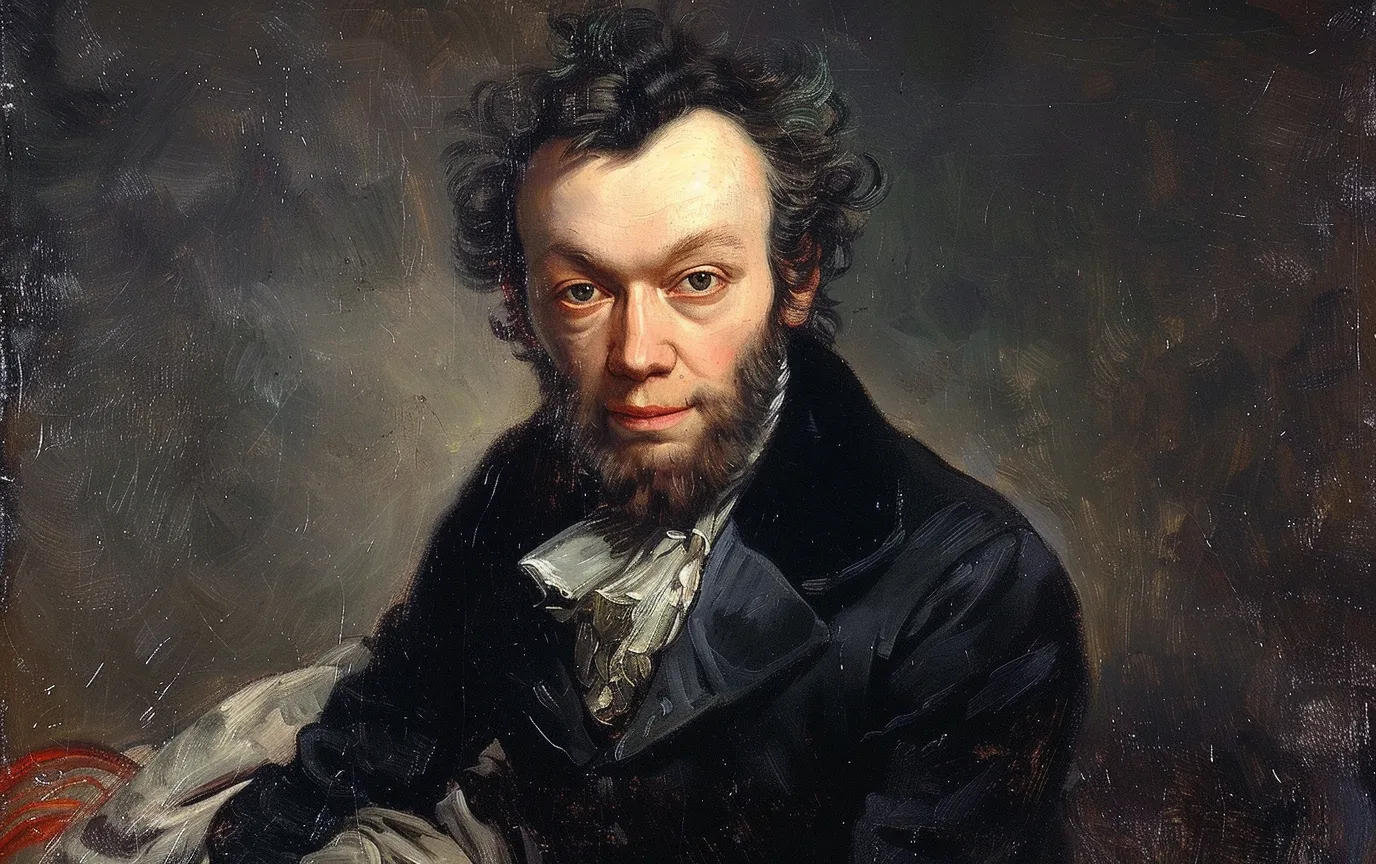
Эволюционирующая природа статуса и уважения
По мере того как общество становится все более демократичным и эгалитарным, жесткие статусные иерархии прошлого постепенно разрушаются.
Границы между социальными слоями становятся все более проницаемыми, а идея о том, что уважение нужно заслуживать добродетелями, а не требовать его на основе формального статуса, набирает обороты.
Однако полная ликвидация статусного отношения остается скорее идеалом, чем универсальной реальностью.
В конце концов, как показал поэт Александр Пушкин, отказавшись от дворянства и чина, истинное уважение заслуживается поступками и характером, а не навязывается формальными титулами или властными позициями.
Сосредоточившись на воспитании подлинных добродетелей и вежливом и достойном отношении к окружающим, мы сможем работать над созданием более справедливого и уважительного общества.



